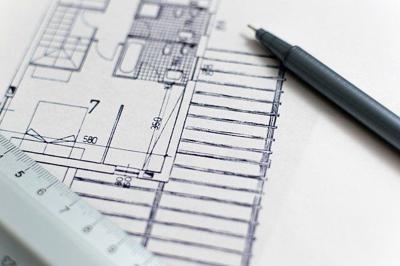
If you are a homeowner and the water heater hasn't required repairs yet, wait. They burst or spring a leak every ten years. So, you've got that to anticipate. Unexpected repairs are financial emergencies that always come at the wrong time. Water heaters might be the least of your concerns as a few hundred dollars later; you might be back to the hot shower, new furnace, roof repair, or even the air conditioning unit. Now, these are big-money repairs that can quickly put a dent in your budget.
Homeownership is expensive, and when the unexpected occurs, homeowners are left pondering how to meet these repairs' costs. So, what options are available to make it happen?
To help you cover the unexpected home repair costs, we've gathered six popular options you can explore.
Homeowners Insurance
Remember to check the fine print of your insurance policy to determine if the insurance can cover the repair costs. For example, replacing a roof damaged by a storm might be covered. You might not be able to assess the damage on the top, but a skilled inspector can help you. Whenever substantial repairs become necessary, make sure to examine all the options your policy can cover.
Anticipate Future Repairs
One of the experts' recommendations to new homeowners is to anticipate and prepare for home repairs. Generally, as the home gets older, the more it demands repairs. According to a 2019 CIBC Home Renovations Poll, over half of Canadians budget up to $10,211 yearly for home repairs. That's quite some amount to come up with and as a ground-rule, set aside 1% of the home's cost every year for maintenance and repair. However, some repair estimates might be more than this and, in such a situation, set aside whichever amount is more considerable. For example, if your house cost was $500,000, you can set aside %5,000 yearly for repairs and maintenance. The most common repairs include:
● New roof
● Exterior siding
● Electrical issues
● Air conditioning unit
● Roof repairs/New roof
● Mold removal
● Repair plumbing
● Termite damage
Government Assistance
The government's FHA 203 (k) and the limited 203 (k) loan programs provide for the financing of the property and come with additional funds to the loan to help with home repairs. The Department of Housing and Urban Development is in charge of offering these home improvement loans. The FHA-insured loans with little equity to the home. The proceeds go for major repairs and to make your home more "livable'. But to this extent, it doesn't include luxurious amenities like swimming pools.
Personal Loan
Many people might have tons of equity they can borrow. As such, personal loans come in handy in financing home repairs. Personal unsecured loans usually don't use your home as the loan collateral. Personal loans are quicker than home equity lines of credit. Personal loans from iCash have adjustable rates that are dependent on your credit score. An excellent credit score is likely to get a more affordable rate. The payback period of personal loans is flexible. While the terms of the loans are not the most favorable, the loans are more accessible, especially for many that don't have much equity in their homes. Personal loans make more sense in an emergency where the repair or replacement of immediate repairs.
Credit Card
A credit card can help cover the costs of home repair both in the front end (discounts on repair purchases) or the back end (using accumulated rewards to "erase" assets). Here are some more ways your credit card might help offset the repair costs.
● Leverage signup bonuses: If applying for a new card, you are entitled to signup bonuses that range from $150-$200. Once you meet a certain pre-set spending threshold, you can put this "free money" towards home repairs.
● Evaluate store cards: If you plan on spending at a particular store a significant amount of money to purchase the repairs, you may want to find out about the store's co-branded cards. Many stores often reward loyalists quite handsomely.
Contractor Financing
A great way to handle unexpected repairs is by teaming up with contractors who offer customer financing solutions. This means you can get the necessary fixes done quickly without spending all your savings or using expensive credit cards. By choosing contractors who let you pay in installments, you can make your home safe and comfortable again while keeping your finances in good shape.
Disaster Relief
Is your home repair need disaster-related? You may want to consult relief organizations like the Red Cross or the Federal Emergency Management Agency. These relief organizations can help cover costs that are not covered by your homeowner's insurance policy. However, the funds are for significant safety and sanitary repairs and not necessarily to restore the house to its pre-disaster condition.
If your house needs some repairs and is going through a challenging financial situation, tap into one of these resources to help repair your home. You may even be inspired to join in and help others.




(0) comments
We welcome your comments
Log In
Post a comment as Guest
Keep it Clean. Please avoid obscene, vulgar, lewd, racist or sexually-oriented language.
PLEASE TURN OFF YOUR CAPS LOCK.
Don't Threaten. Threats of harming another person will not be tolerated.
Be Truthful. Don't knowingly lie about anyone or anything.
Be Nice. No racism, sexism or any sort of -ism that is degrading to another person.
Be Proactive. Use the 'Report' link on each comment to let us know of abusive posts.
Share with Us. We'd love to hear eyewitness accounts, the history behind an article.